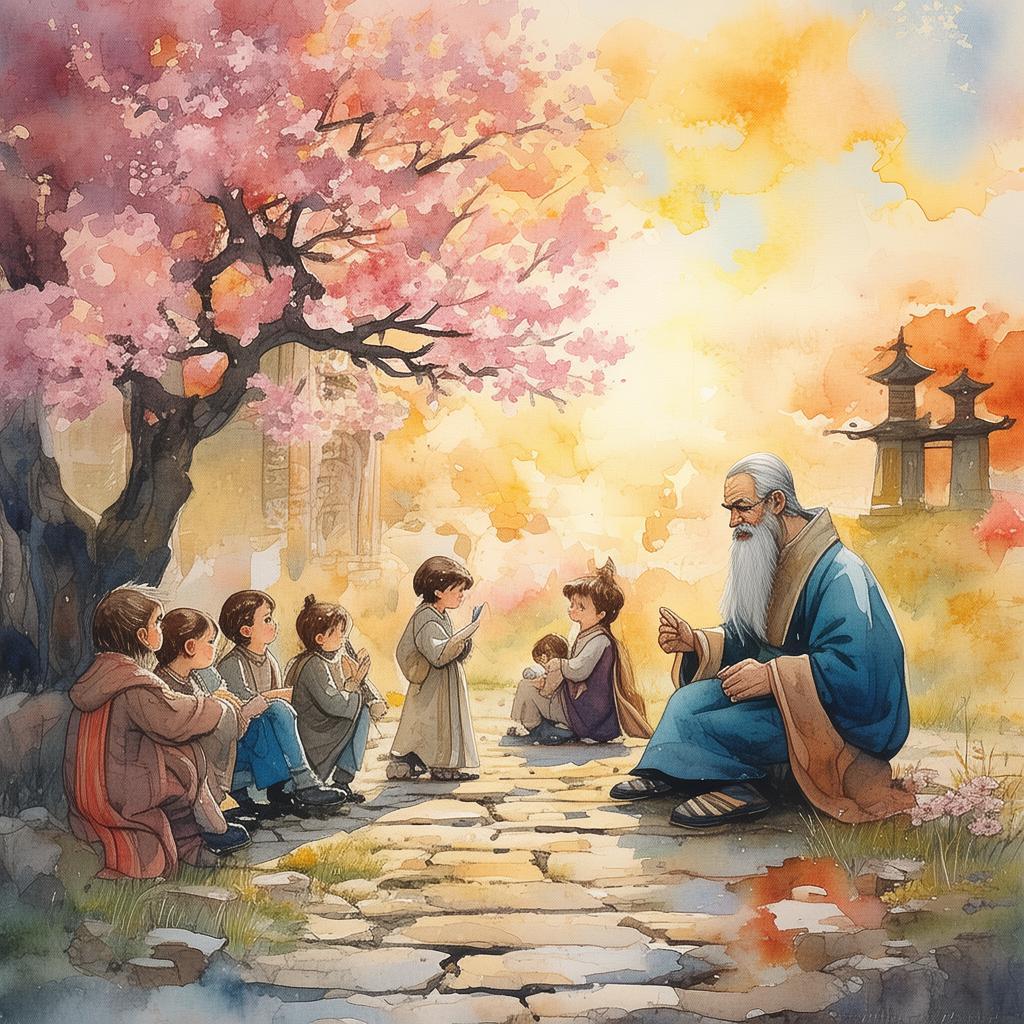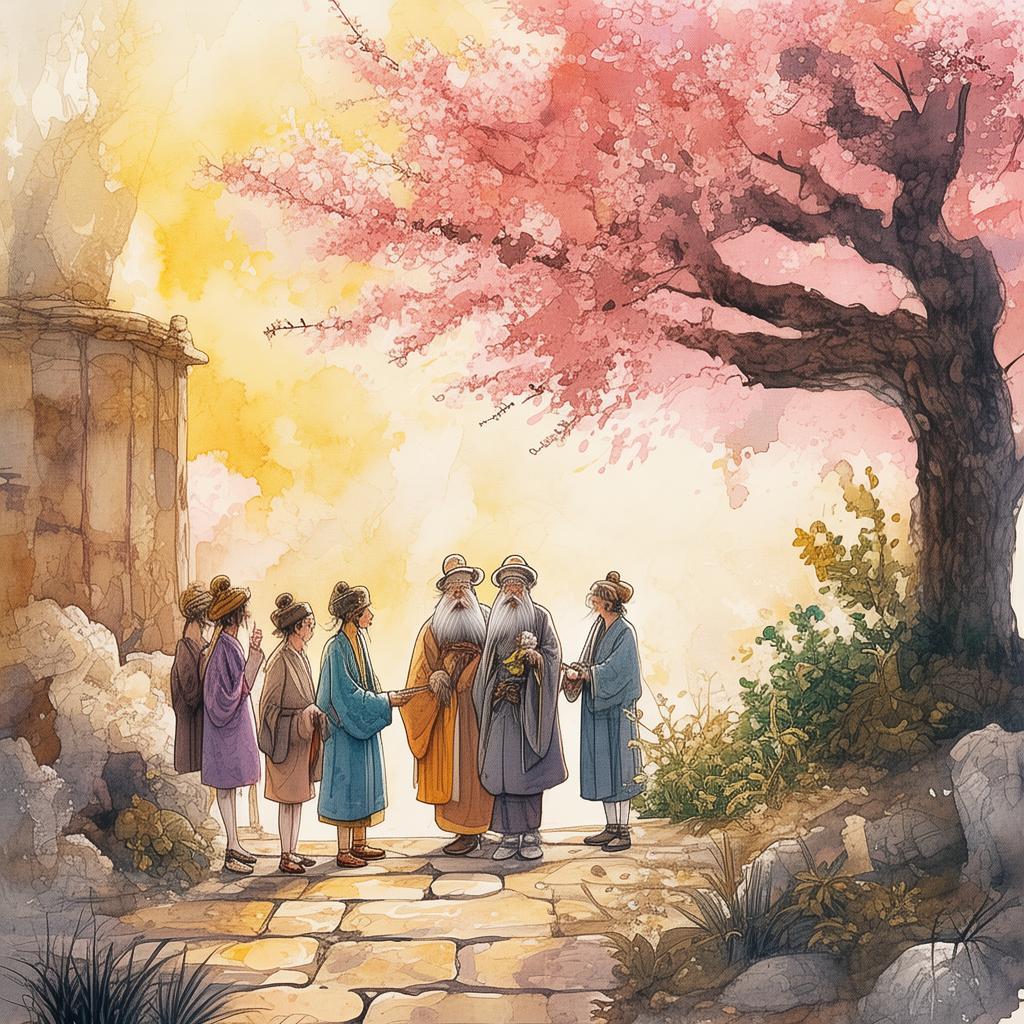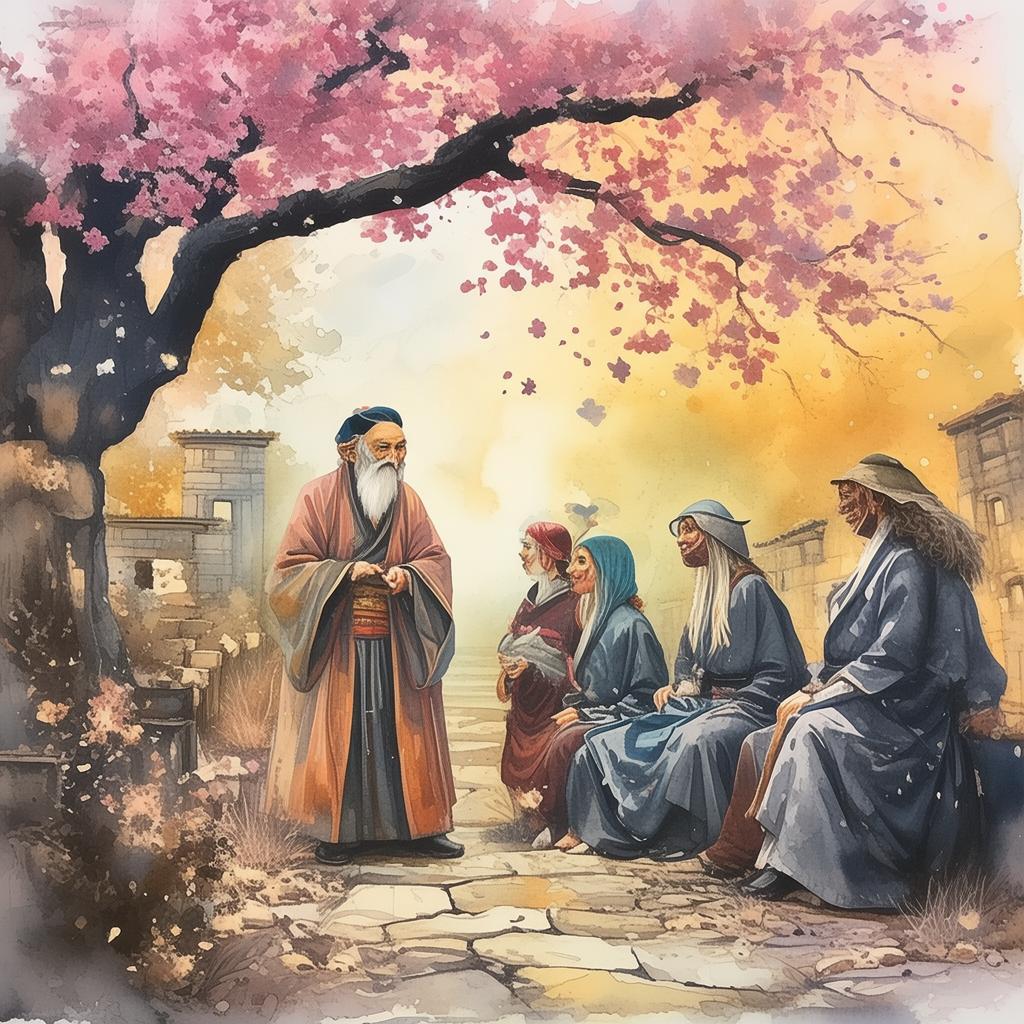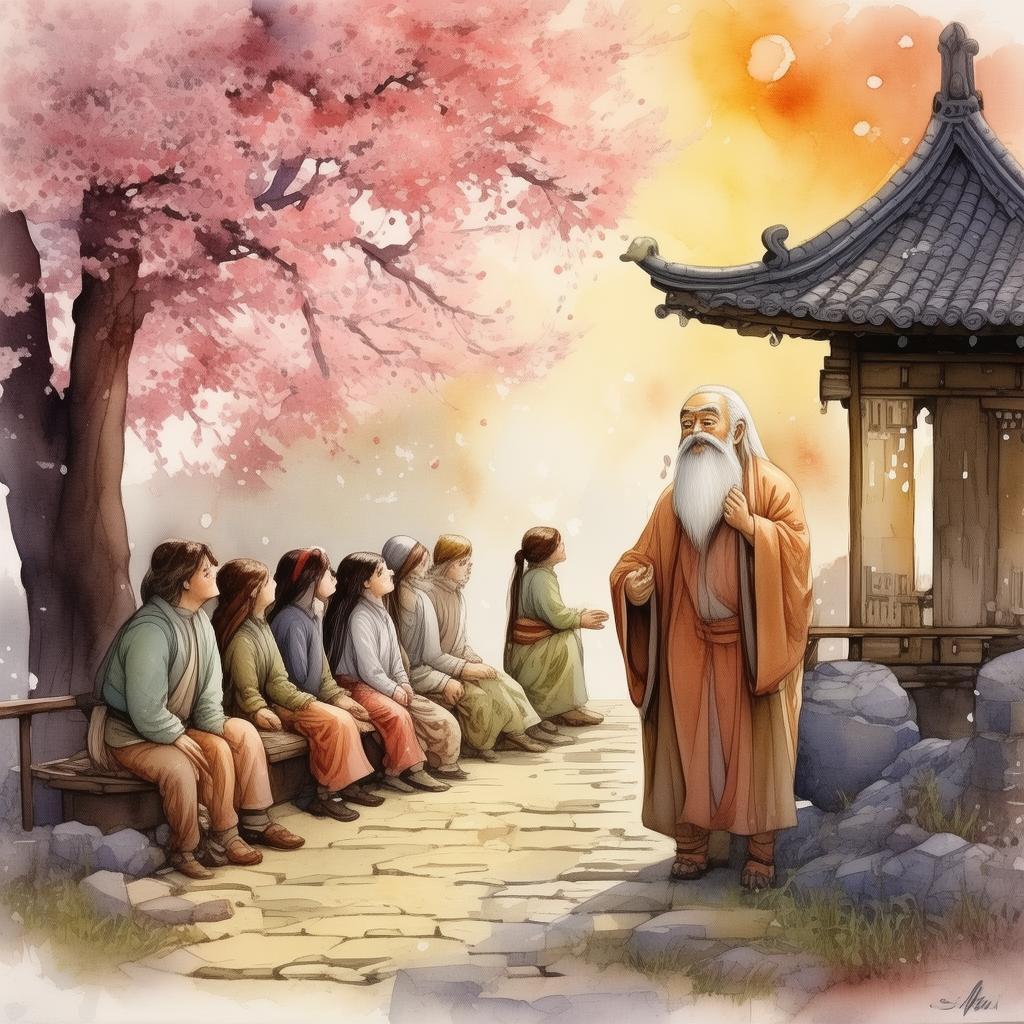Whispers of the Ancient City: The Fall of an Empire
In the heart of the ancient city, where the sun kissed the towering walls and the scent of exotic spices filled the air, there lived a young scholar named Lin. He was known for his wit and wisdom, and his knowledge of the empire's history was unparalleled. Yet, Lin was not merely a scholar; he was a revolutionary, driven by the desire to bring about change in a world that had grown weary under the yoke of tyranny.
The city was a tapestry of cultures, a melting pot of ideas and beliefs, but it was also a place of deep divides. The wealthy elite lived in opulence, while the common folk suffered under the burden of heavy taxes and oppressive rule. The empire, once a beacon of strength and prosperity, had grown complacent and corrupt, its once-great cities now shrouded in decay and despair.
Lin's mentor, Master Feng, had often spoken of the ancient city's disdain for the current regime. "The time is ripe for change," he would say, his eyes gleaming with a mix of hope and foreboding. "The people are restless, and the empire's foundation is crumbling like an old, forgotten temple."
One rainy night, as Lin walked the cobblestone streets, he stumbled upon an old, dusty scroll hidden beneath a loose brick. The scroll, yellowed with age, seemed to call out to him. He pulled it out, unrolling it with trembling hands. The scroll was a map, detailed and intricate, depicting a hidden chamber beneath the city.
Lin's curiosity was piqued. He had heard whispers of such a place, but no one had ever found it. The map led him deeper into the city, through dark alleys and narrow passageways, until he reached a massive stone door. The door was inscribed with symbols he could not decipher, but the map indicated that he had found the right place.
With a deep breath, Lin pushed the door open, revealing a stone staircase that spiraled down into darkness. He descended, his torch casting flickering shadows on the cold, stone walls. At the bottom, he found himself in a vast chamber, the walls lined with ancient artifacts and forgotten relics.
In the center of the chamber stood a pedestal, upon which rested an ornate box. Lin approached the box, his heart pounding with a mix of fear and excitement. He opened the box to reveal a scroll, covered in strange symbols and cryptic messages. As he read the scroll, he realized it contained the secrets of the empire's downfall.
The scroll spoke of a hidden conspiracy, a plot to destroy the empire from within. The conspirators were high-ranking officials, members of the elite, who sought to replace the current ruler with one of their own. Lin's mind raced as he pieced together the puzzle. The revolution was not what it seemed; it was a tool in the hands of those who sought to exploit the people's anger for their own gain.
Lin knew he had to act. He had to expose the conspiracy, to prevent the empire's fall. He returned to the surface, determined to gather evidence and allies. He sought out the revolutionaries, the common folk, and even the elite, revealing the truth to those who would listen.
The revolutionaries were shocked, their eyes wide with disbelief. The common folk were angry, their faces contorted with a mix of despair and hope. The elite, however, were a different matter. They denied the truth, tried to silence Lin, but he would not be deterred.
The climax of Lin's struggle came when he confronted the conspirators, the leaders of the revolution. They were surprised to see him standing before them, but they were not afraid. They had planned for this, had counted on the people's ignorance and the revolution's momentum.
The scene was tense, filled with threats and accusations. Lin stood his ground, his voice steady as he laid out the evidence. The conspirators, unable to refute his claims, were forced to admit their guilt. The revolution was a facade, a mask for their true intentions.
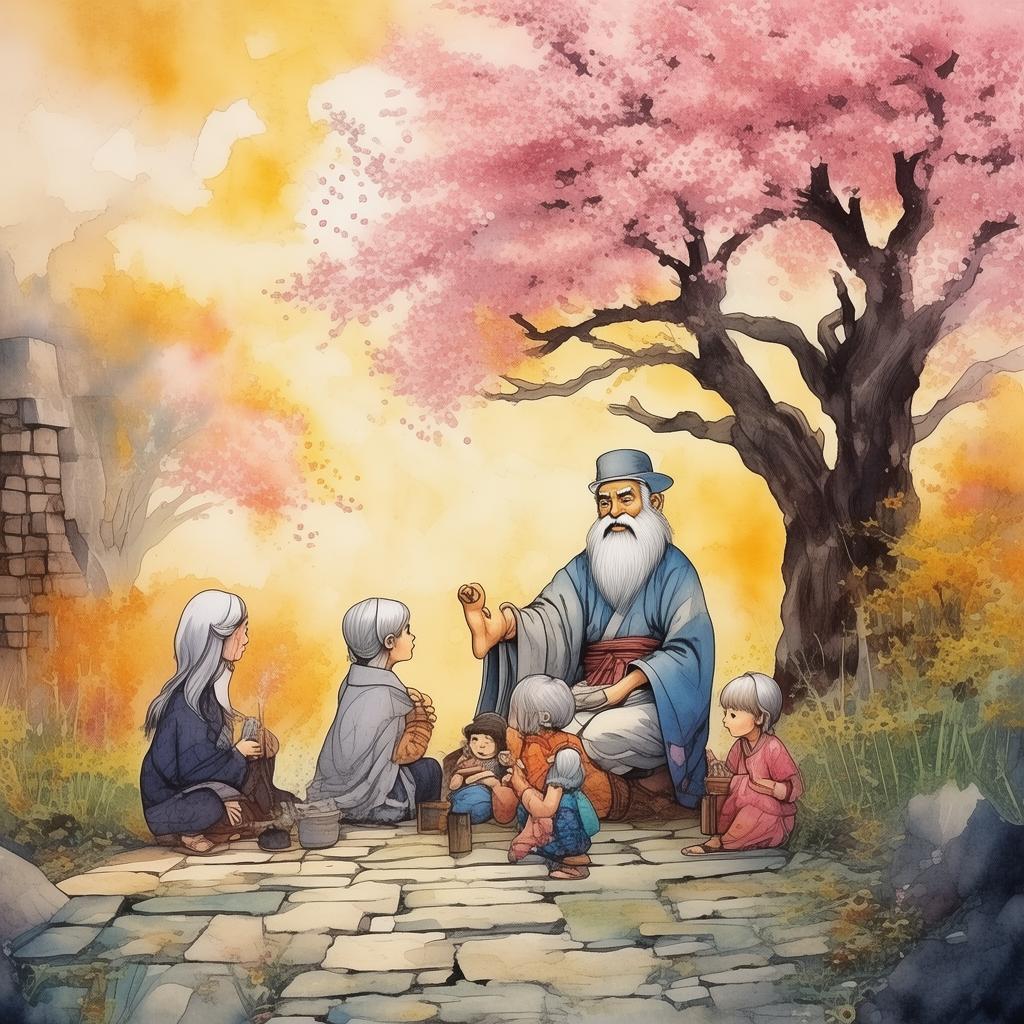
Word of Lin's discovery spread like wildfire, igniting a new wave of revolution. The people, now aware of the true nature of the rebellion, turned against the elite. The empire, its foundation weakened by the conspiracy, crumbled under the weight of its own corruption.
The ancient city, once a beacon of strength, fell into chaos. The revolutionaries, led by Lin, sought to rebuild, to create a new empire, one that would be fair and just. But the road to progress was fraught with obstacles, and the echoes of the ancient city's disdain for the old regime still lingered in the air.
Lin, now a leader among the revolutionaries, looked out over the ruins of the ancient city. He knew that the path ahead would be difficult, but he was determined to forge a new future, one that would honor the spirit of the people and the wisdom of the ancient city.
And so, the fall of the ancient city became a tale of revolution, of courage, and of hope. It was a story that would be told for generations, a reminder that even in the darkest of times, there is always a light that can shine through.
The revolution continued, and the ancient city slowly began to rebuild. Lin, the young scholar turned leader, remained at the forefront, his mind ever-focused on the future. The empire, once a force to be reckoned with, had fallen, but the spirit of its people had not.
The story of Lin and the ancient city's fall became a legend, a tale of resilience and the power of truth. And as the sun set over the city, casting long shadows on the ruins, Lin knew that the ancient city's disdain for tyranny would never be forgotten.
✨ Original Statement ✨
All articles published on this website (including but not limited to text, images, videos, and other content) are original or authorized for reposting and are protected by relevant laws. Without the explicit written permission of this website, no individual or organization may copy, modify, repost, or use the content for commercial purposes.
If you need to quote or cooperate, please contact this site for authorization. We reserve the right to pursue legal responsibility for any unauthorized use.
Hereby declared.
